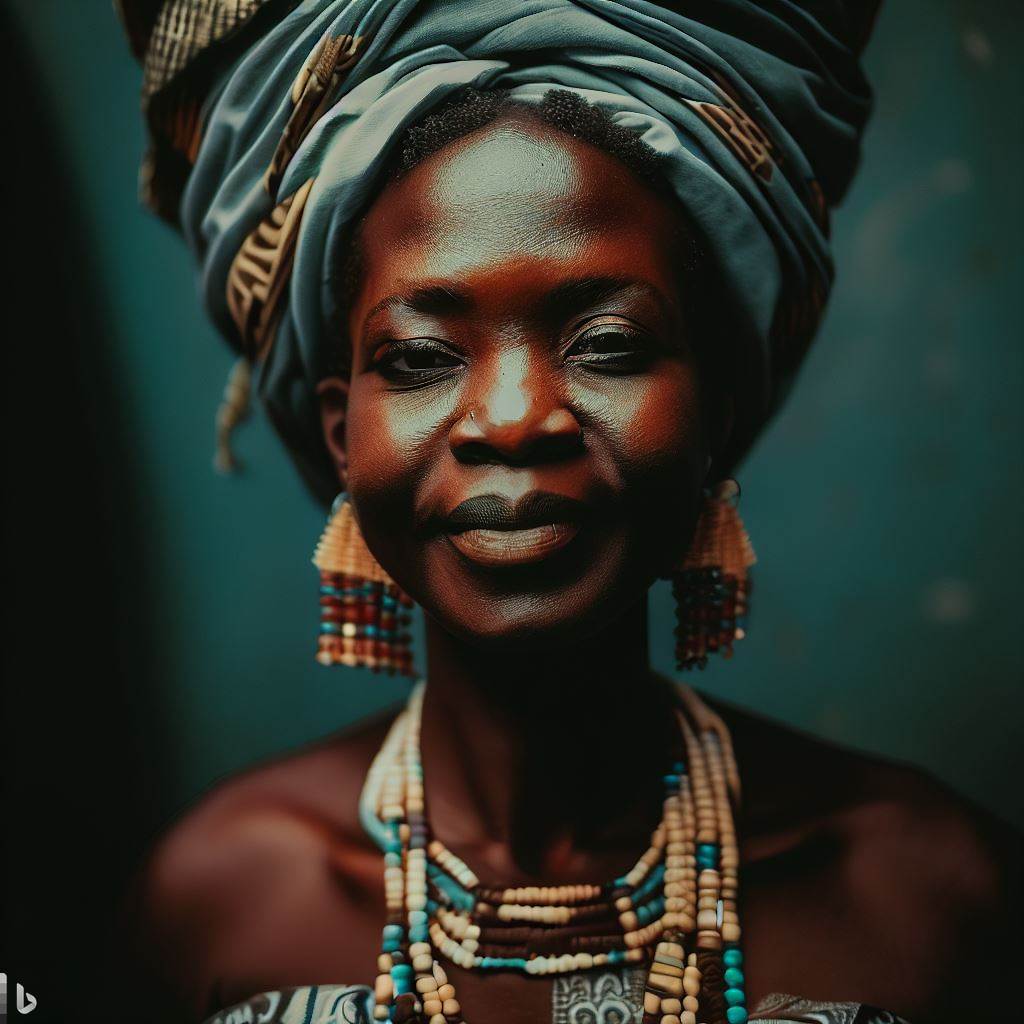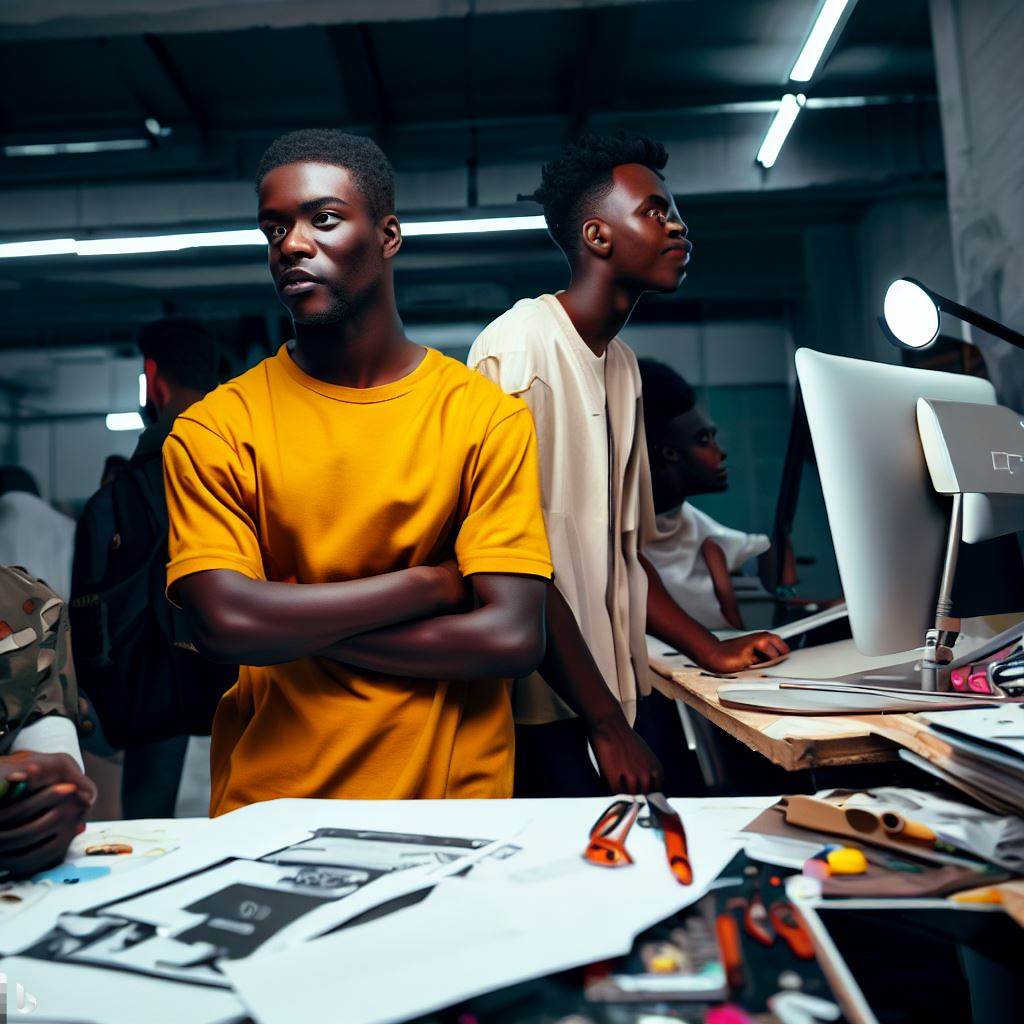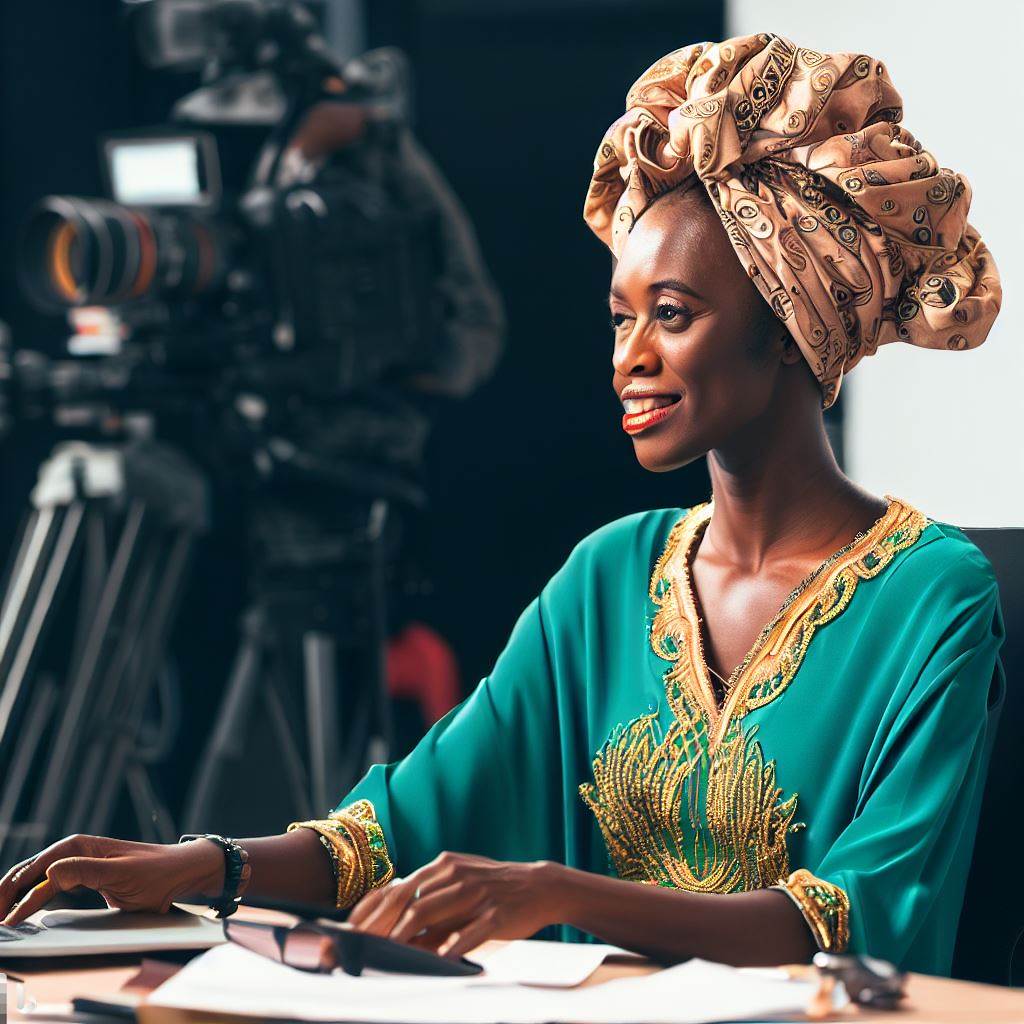Introduction
Portraits in Nigeria offer a glimpse into the country’s rich culture and tradition.
The connection between cultures and photography lies in capturing the essence and uniqueness of a society.
This blog post aims to explore how portraits in Nigeria serve as a bridge between culture and photography.
Historical Background of Portraiture in Nigeria
Traditional art in Nigerian culture encompasses a diverse range of practices, each portraying the essence and identity of individuals and communities.
A. The Significance of Portraiture in Nigerian Culture
Portraiture captures essence, holding profound significance in Nigerian culture.
- Historical Roots: Portraits symbolized influence, commissioned for events, milestones, and legacies.
- Cultural Role: Integral in ceremonies, rituals, gatherings—preserving spirit and identity for future generations.
B. Transformation during colonialism
- European Influence: Colonial era introduced Western art mediums, including photography for portraiture.
- Accessible Medium: Photography offered affordable realism, reshaping Nigerian artistic expression.
Early Nigerian photographers embraced portraiture
- Cultural Heritage: Portraits depicted resilience, individuality, and pride, challenging stereotypes.
- Representation: Photos countered colonial notions, highlighting Nigeria’s diversity and beauty.
Photographers’ impact
- Cultural Fusion: Blend of tradition and Western technique created captivating, hybrid portraits.
- Cultural Preservation: Photos preserved traditions and enriched evolving Nigerian art.
In summary, portraiture holds deep meaning in Nigerian culture. It preserves identity, legacies, and challenges narratives.
Photography’s rise during colonialism and photographers’ blend of tradition and innovation shaped Nigerian art.
Read: Digital Photography in Nigeria: Trends, Tools, and Techniques
Cultural Significance of Portraits in Nigeria
A. Cultural meanings attached to portraits in Nigerian society
1. Connecting Identity, Heritage, and Social Status
Portraits in Nigerian society convey more than just images – they tell stories.
Through these captivating visuals:
- Identity takes center stage: Portraits capture individuals’ essence, linking them to their cultural roots.
- Heritage breathes within each frame: Portraits evoke traditions, reminding Nigerians of their rich history.
- Social status finds expression: Elaborate portraits highlight one’s rank and achievements, reflecting societal hierarchies.
2. Celebration and Remembrance: Portraits in Life’s Tapestry
Portraits, beyond frozen moments, weave emotions and memories, playing pivotal roles:
- Celebration bursts forth: Portraits immortalize joyous occasions – weddings radiate love, uniting families and cultures.
- Remembrance finds solace: Portraits provide a tangible connection to loved ones who have departed, offering comfort.
B. The role of portraits in Nigerian rituals, ceremonies, and traditions
1. Portraits within Rituals, Ceremonies, and Traditions
Nigeria’s rituals and ceremonies are a symphony of cultural expressions, and portraits compose a key note:
- Weddings transcend union: Portraits encapsulate the splendor, intricate attire, and unity in diverse customs.
- Royal portraits embody sovereignty: Monarchs’ dignity and ancestry echo through portraits that stand as cultural emblems.
2. Adorning Spaces: Portraits as Cultural Pride
Within homes and public spaces, portraits stand as eloquent declarations of cultural pride:
- Homes breathe heritage: Portraits adorn walls, narrating family legacies, while bridging modernity and tradition.
- Public squares resonate: Portraits of cultural icons connect generations, fostering a shared identity and inspiring progress.
In Nigeria’s portrait-strewn tapestry, identity, celebration, and tradition harmonize, creating an exquisite masterpiece that honors the past while shaping the future.
Read: Photography Equipment: A Buying Guide for Nigerian Photographers

Discover More: Exploring the Impact of Digital Design in Nigeria’s Tech Boom
Impact of Modern Photography on Nigerian Portraiture
A. The emergence of contemporary Nigerian photographers and their innovative approaches
- Contemporary Nigerian photographers play a vital role in pushing the boundaries of traditional portraiture.
- These photographers experiment with new styles, techniques, and concepts to create unique and captivating portraits.
- Through their innovative approaches, they challenge conventional norms and redefine the art of portraiture in Nigeria.
B. Analyzing the fusion of traditional Nigerian aesthetics with modern photography
- Nigerian photographers skillfully blend elements of their rich cultural heritage into their portrait photography.
- They incorporate traditional clothing, accessories, and symbols to infuse their work with a sense of cultural identity.
- This fusion of traditional aesthetics and modern photography creates visually striking images that convey powerful narratives.
C. How photographers blend cultural elements into their portraiture
- Photographers use traditional props and backdrops to create a distinct Nigerian atmosphere in their portraits.
- They often incorporate traditional Nigerian hairstyles, body art, and jewelry to enhance the cultural authenticity of their subjects.
- By blending these elements, photographers create a visual dialogue between the past and present, celebrating Nigerian heritage.
Read: Boost Your Nigerian Career with PhotoLab: Must-Know Secrets!
D. The significance of portraying diverse Nigerian identities and stories
- Nigerian photographers recognize the importance of representing the diversity of their country’s population.
- They capture the stories and experiences of people from different tribes, religions, and socio-cultural backgrounds.
- Through their portraiture, photographers aim to promote inclusivity, challenge stereotypes, and foster a sense of unity among Nigerians.
E. Notable Nigerian photographers who have gained international recognition
- TY Bello, a renowned Nigerian photographer, is known for her powerful and emotive portraits.
- She gained international acclaim for her photograph of the Nigerian musician, Olajumoke Orisaguna, which went viral.
- Another notable Nigerian photographer, Andrew Esiebo, is celebrated for his documentary-style portraits that address social and political issues.
- Zainab Andalibe, a rising star in Nigerian photography, explores themes of gender, identity, and cultural heritage in her work.
- These photographers have successfully put Nigerian portraiture on the global stage, arousing interest and appreciation for Nigerian artistry.
Overall, the impact of modern photography on Nigerian portraiture has been significant.
Contemporary Nigerian photographers have emerged with innovative approaches, pushing the boundaries of traditional portraiture.
They skillfully blend traditional Nigerian aesthetics with modern techniques, creating visually striking images that celebrate their cultural heritage.
By portraying diverse Nigerian identities and stories, photographers foster inclusivity, challenge stereotypes, and promote unity.
Notable photographers like TY Bello, Andrew Esiebo, and Zainab Andalibe have gained international recognition, placing Nigerian portraiture in the global spotlight.
As the Nigerian photography scene continues to evolve, the fusion of culture and photography will undoubtedly shape the future of Nigerian portraiture.
Read: Photography Schools in Nigeria: Where Talent Meets Technique
Future of Portraits in Nigeria
The Future of Portrait Photography in Nigeria: A Promising Outlook
Advancements in technology and accessible equipment create growth opportunities for Nigerian photographers.
- Technological Accessibility: Cameras and tools become more affordable, fostering talent and creativity.
- Social Media’s Impact: Platforms like Instagram facilitate easy sharing, expanding photographers’ reach.
- Rising Aspirants: Increasing camera access leads to a surge in aspiring photographers.
Technology and social media shape Nigeria’s portrait photography landscape
- Smartphone Revolution: High-quality phone cameras and editing tools democratize image creation.
- Platform Power: Instagram and Facebook provide accessible showcases, audience engagement, and recognition.
Promoting cultural heritage is vital
- Educational Empowerment: Photography inclusion in curricula encourages creative exploration among Nigerian youth.
- Cultural Institutions: Museums and galleries offer exposure and recognition platforms for photographers.
Appreciating and engaging with Nigerian portraits is key
- Cultural Connection: Understanding each portrait’s significance deepens viewer-artwork relationships.
- Supporting Local Artists: Attendance, purchases, and commissions aid industry growth and cultural preservation.
- Diverse Narratives: Active engagement uncovers Nigeria’s multifaceted beauty and stories.
Lastly, Nigeria’s portrait photography future shines bright.
Technological access, social media’s reach, cultural preservation, and active appreciation together ensure a thriving and vibrant art scene.
Read: Nigerian Wedding Photography: A Beautiful and Lucrative Niche
Conclusion
In this blog post, we explored the fascinating world of Nigerian portraits and their connection to culture.
Nigerian portraits not only capture the physical features of individuals but also reflect their cultural backgrounds and identities.
By appreciating and exploring Nigerian portraiture further, we can gain a deeper understanding of the rich diversity of Nigerian culture and its people.
Take the time to explore this captivating art form and discover the beauty it holds.




